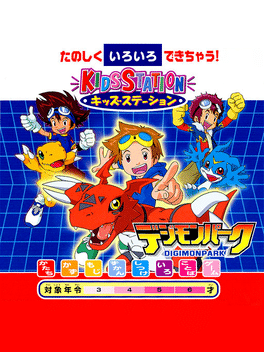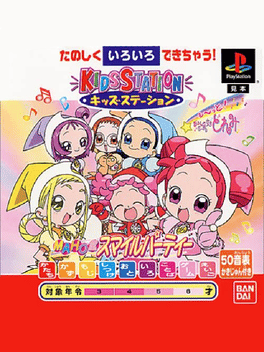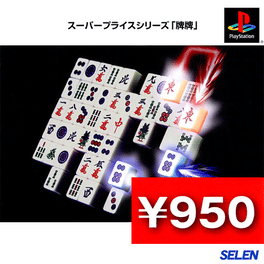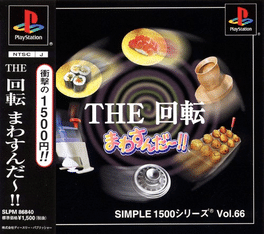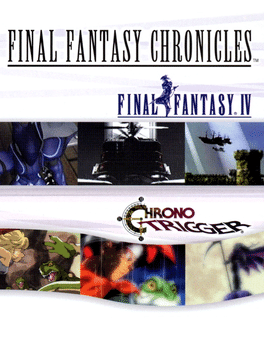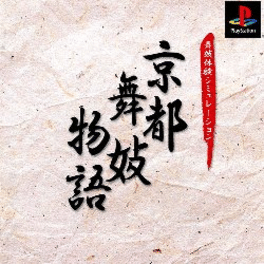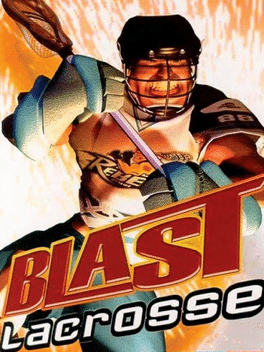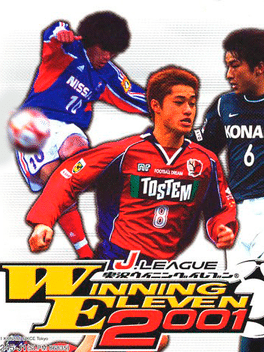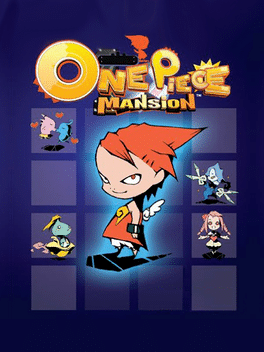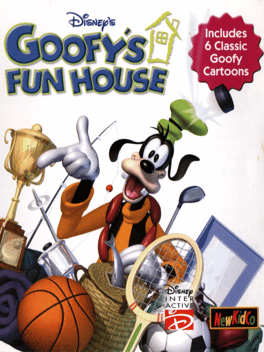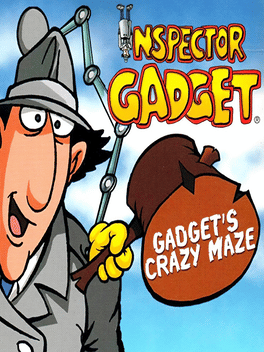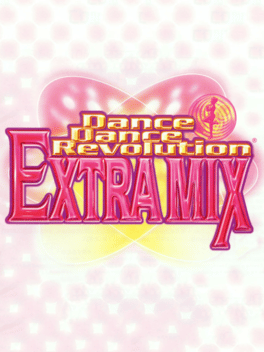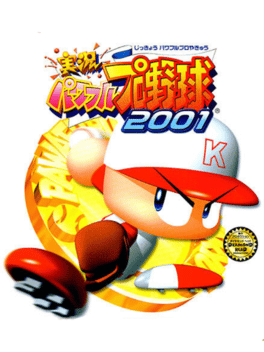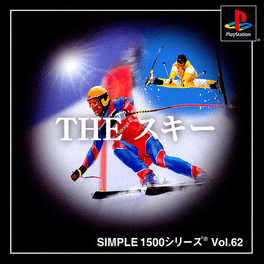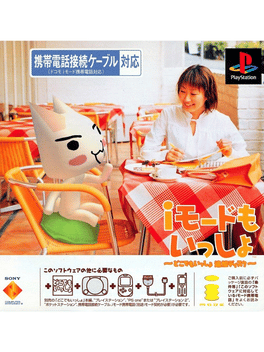New Ps Games - Page 19
-
Dokodemo Hamster 4: Doki-doki Sugoroku Daibouken!
2001
Dokodemo Hamster 4: Doki-doki Sugoroku Daibouken! is the fourth game in the Dokodemo Hamster series. In the game the player controls one of 4 different hamsters in a 2d board game that takes place in different parts of an island. The gameplay is the usual in a board game since the player roll a dice to reach different squares of the board, there are mini games and other events around each board table, and the player that win is the one that reachs the end of each board first. -
Kids Station: Digimon Park
2001
Digimon Park is an interactive game for children part of the Kids Station series. The player can choose a digimon and make it evolve increasing his stats. The game also features a collection of mini-games. -
Kids Station: Motto! Oja Majo Do-Re-Mi - Mahodou Smile Party
2001
Educational game based off the Motto! Ojamajo Doremi anime television series. -
Super Price Series: Paipai
2001
Super Price Series - Paipai is a mahjong paipai game since in this game the player doesn't compete againts 3 players like in a classic mahjong, instead of that in this game the gameplay is similar to the Shanghai series, the player has to make all the pieces dissappear 2 by 2, matching 2 pieces of the same form. The game features a 2 players vs mode and different computer difficulty levels. -
Colorful Logic 3
2001
Colorful Logic 3
2001
From the puzzle game "colorful logic" was recorded "logic puzzle" of the popular 3rd-themed shopping appeared to PS. Recorded a total of 300 questions hearty, "In addition to color and black-and-white logic" familiar, you enjoy the ''logic deformation "of the complete set of rich individuality can be a problem. Aim to win Qianmen around the quirky shops. -
Simple 1500 Series Vol. 66: The Kaiten - Mawasun Da!!
2001
Simple 1500 Series vol. 66: The Kaiten - Mawasun Da!! is a collection of a lot of wacky mini games with a difficult control method since in most of the games the player has to turn quickly the left analog stick to gain speed and is really hard to do it. -
Final Fantasy Chronicles
2001
star 8.2Final Fantasy Chronicles is a compilation that includes Final Fantasy IV, and another Square production, Chrono Trigger, released for the Sony PlayStation. Both games were ports of titles originally released for the Super Nintendo Entertainment System. Although both games differ little from the original versions in terms of gameplay, graphics and sound, a number of additional bonus/extra sequences are included, including art galleries, bestiaries and full motion video cutscenes. -
SuperLite 1500 Series: Slither Link
2001
Slitherlink (also known as Fences, Takegaki, Loop the Loop, Loopy, Ouroboros, Suriza and Dotty Dilemma) is a logic puzzle developed by publisher Nikoli. Slitherlink is played on a rectangular lattice of dots. Some of the squares formed by the dots have numbers inside them. The objective is to connect horizontally and vertically adjacent dots so that the lines form a simple loop with no loose ends. In addition, the number inside a square represents how many of its four sides are segments in the loop. Other types of planar graphs can be used in lieu of the standard grid, with varying numbers of edges per vertex or vertices per polygon. These patterns include snowflake, Penrose, Laves and Altair tilings. These add complexity by varying the number of possible paths from an intersection, and/or the number of sides to each polygon; but similar rules apply to their solution. SuperLite 1500 Series - Slither Link is a puzzle game based on the Slitherlink logic puzzle featuring over 200 different stages. -
Leiji Matsumoto 999: Story of Galaxy Express 999
2001
An adventure game for the PlayStation based on Leiji Matsumoto's Galaxy Express 999. You assume the role of Tetsurô Hoshino, a young boy that witnesses the murder of his mother by Count Mecha, a cyborg who hunts humans for sport. In his quest for revenge, Tetsurô meets Maetel, a mysterious lady who offers him a pass for the prestigious "Galaxy Express 999", a space train that travels from Earth to the Andromeda galaxy. There Tetsurô could get a mechanized body for free and thus be able to challenge Count Mecha. -
Kyoto Maiko Monogatari
2001
Kyoto Maiko Monogatari is a simulation game in which the player controls a young girl that begins her training to become a maiko, the game features music mini games (like copy the movements of the trainer in a drum), and different levels of training that only can be reached when the girl pass the previous ones. During the game there are video sequences to show different things about maiko way of life and the player can also interact with different trainers. The game features 2D graphics, first person perspective & japanese voice acting in the video sequences. Maiko is a Japanese word for 'dancing girl' and is an apprentice geisha. A geisha is a traditional, female Japanese entertainer, whose skills include performing various Japanese arts, such as classical music and dance. It is the maiko, with her white make-up and elaborate kimono and hairstyle, that has become the stereotype of a "geisha" to westerners, rather than the true geisha. A woman entering the geisha community does not have to start out as a maiko, -
Blast Lacrosse
2001
Blast Lacrosse
2001
Blast Lacrosse is an indoor lacrosse video game released on May 23, 2001 for Sony's PlayStation. It is officially licensed by and based on the National Lacrosse League and includes all nine teams of their 15th season, including mascots.[1] It is also licensed by the Professional Lacrosse Players' Association. The game features in-game advertisements for Shamrock Lacrosse and STX. The cover features an Ottawa Rebel player wearing #88. This is the only lacrosse related video game ever on Sony's PlayStation: PSP, PS1, PS2, and PS3 The style of play is very similar to the arcade style of NBA Jam and NFL Blitz where, if a player scores a hat trick they become "on fire" and play better until stopped. The game is voiced by play-by-play man, and sports radio host, Scott Ferrall. -
J.League Jikkyou Winning Eleven 2001
2001
J.League Jikkyō Winning Eleven 2001 (known as World Soccer Winning Eleven 4) is a sports video game developed by Konami for the PlayStation exclusively in Japan in June 2001. It is an addition to the Winning Eleven J-League series, and the successor to the J.League Winning Eleven 2000. The game only features club teams (no national teams) and teams from both tiers of the J. League totalling 28 teams. The game also features seven foreign teams from the European football leagues. The game uses the Winning Eleven 2000 engine. -
One Piece Mansion
2001
One Piece Mansion
2001
A strategy game for the PlayStation unrelated to the popular anime and manga series One Piece. -
Disney's Goofy's Fun House
2001
star 6.8Goofy must explore each a part of his home which consists of 15 distinct rooms. Each room includes elements such as a blender in the kitchen or table saw in the garage that the player can interact with. The main focus of play centers around collecting the 50 film canisters and certain objects Goofy has misplaced throughout his home. In addition to this, there are several mini-games that may be accessed via the paintings in the rec room of Goofy's house if the player finds all the objects that are needed. There's mini-games that range from golf and fishing to skiing and driving (based on How to play...) . After Goofy completes each mini-game and finds a few special items found somewhere in the house, a corresponding cartoon like: How to Play Golf will be unlocked. The game is considered "Completed" when the player completes all the mini-games, finds all of the cartoon-specific items, and collects at least 50 film canisters, unlocking the final cartoon. -
Afraid Gear Another
2001
Afraid Gear Another
2001
An Office Create developed strategy game developed exclusively for PlayStation as a follow up to the PlayStation original, Afraid Gear, which was also only released in Japan -
Inspector Gadget: Gadget's Crazy Maze
2001
star 5.1Inspector Gadget: Gadget's Crazy Maze isn't the type of game one would expect when taking on the role of the bumbling, multi-functional detective of the 1980's cartoon. Rather than an action title like its Game Boy Color counterpart, this incarnation of Inspector Gadget is best described as a puzzle game with limited action elements. According to the story of Gadget's Crazy Maze, Inspector Gadget's mysterious arch-nemesis is up to no good once again. This time, the MADD ringleader Dr. Claw has been creating mind-control crystals on his secret moon base, then tossing them down to Earth. If the crystals lay dormant for a short amount of time, they will activate, taking control of the consciousness of the whole world. To make sure no one disturbs them, Dr. Claw has spread them all around four different areas and inserted his vile henchmen to protect them. -
Dance Dance Revolution ExtraMix
2001
This "Extra Mix" follows the tradition of other Dance Dance Revolution titles: players have to press (or dance to) the corresponding arrows that scroll across the screen. A wide selection of techno and club music comes on this release: roughly fifty songs are available either from the start or by accomplishing specific challenges. Dance Dance Revolution: Extra Mix features the standard Solo as well as Diet, Training, Challenge, Endless and "Nonstop Order" modes. -
Simple 1500 Series Vol. 62: The Ski
2001
Simple 1500 Series vol. 62: The Ski is a Ski game that use the same graphic engine that the Snowboarding. The game features 3 main characters (that the player can change their clothes) and 3 game modes: - Race Mode: Compete against yourself or 1 or 2 computer opponents and try to win the race. - Trick Mode: Compete against yourself or 1 or 2 computer opponents and do the best trick score. - Mix Mode: A mix between race & trick mode. You got to win the race and do as much tricks as you can. -
I Modo Mo Issho
2001
I Modo Mo Issho
2001
i Modo Mo Issho (iモードもいっしょ) is a video game developed by Bomber Express and published by Sony Computer Entertainment Inc. It was released on May 24, 2001 for the PlayStation, and it is the third game and an expansion pack for Doko Demo Issyo and Koneko Mo Issho in the Doko Demo Issyo Series. Like Koneko Mo Issho, save data for Doko Demo Issyo is required to play it. It features additional content, such as new environments and music. It's most notable feature is its connection with the i-Mode phone service, a Japanese mobile phone service provided by DoCoMo that allowed an early form of Internet connectivity with mobile phones. Players can use an adapter to connect the phone to the Playstation console and connect to the online service, which allows players to to communicate to other players and the Pokepi, similar to the PocketStation. It is also the last Doko Demo Issyo game to be released exclusively on the PlayStation. The online service ended on December 15th, 2002, but the offline features of

